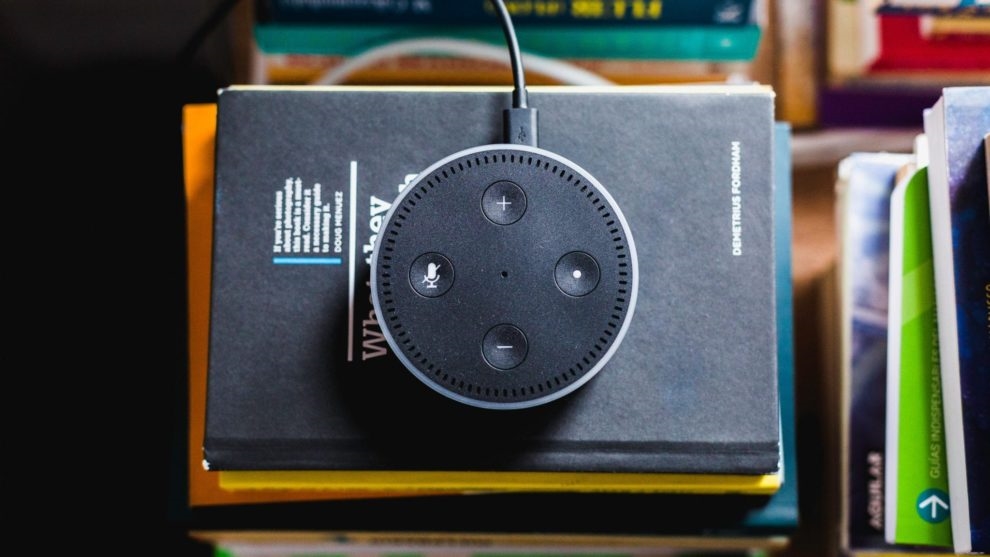— December 18, 2018
We’re inching closer to the New Year which means for cutting-edge businesses, digital transformation will be a top priority. In fact, according to a Gartner survey, 62 percent of CEOs surveyed said they have a management initiative or transformation program to make their business more digital. 54 percent of those CEOs said their digital business objective is transformational while 46 percent said the objective of the initiative is optimization.
The uncertainty of digital transformation keeps both marketing technologists and marketing executives on the edge of their seats. As a digital executive search firm, we know the CMO is most likely the first in the business to leverage cutting-edge technology and drive transformational change – whether they are ready for it or not.
What is the impact digitization will have on marketing operations? How does digital transformation drive a business’s revenue growth? What digital transformation trends should CMOs and marketing leaders prepare for in terms of technological shifts in the coming year?
It is an exciting time for today’s CMOs, who have the opportunity to transform their marketing efforts and leverage technology to position their organization for long-term success. 2019 is the time for CMOs to focus on digitizing a seamless experience for customers by effectively engaging with them at every touchpoint in the buyer’s journey. Chief marketers who choose the technologies that provide maximum benefits to their organization and its customers will drive top-line growth and ROI like never before.
Q&A with a Digital Executive Search Firm: Top Digital Transformation Trends in 2019
We were able to discuss this topic with Brian Best, the Vice President of Digital Marketing and MarTech at Tropical Smoothie Cafe. He shared with us his digital advancement predictions that will impact the CMO in 2019, and how Tropical Smoothie Cafe applies these trends to create an optimal digital experience for their consumers.
Mobile and Location Based Marketing
Brian: Maximizing mobile is key in the QSR (quick service restaurant) and Fast Casual space – from finding customers via mobile targeting, to communicating with known customers via email, SMS and push messaging, to providing a frictionless mobile transactional experience, mobile is key to driving sales growth in this very competitive space. We at Tropical Smoothie Café have a strategic focus on maximizing our mobile experience.
Many marketers talk about reaching the right person at the right time with the right message. We look at it, with the prominence of mobile technology, adding the right place to the equation. Location awareness is key to enabling this communication strategy. To accomplish this, we are focused on ensuring that all location information for our more than 710 cafes is optimized and always accessible. It is crucial we have a single source of truth for key data points like GPS coordinates, cafe names, landmarks, addresses, phone numbers, and hours of operation. We not only ensure that our mobile app and website have this information, but third party entities outside of our owned channels have accurate and actionable location information – Search Engines, Maps, Voice Assistants, GPS Programs, Social Media Sites, Online Review Sites, etc. So, location awareness and detection is a major component of our mobile strategy.
In addition, we strive to make the mobile transactional experience as frictionless and convenient for our guests, so we are actively optimizing our pickup and delivery capabilities for our mobile app and website. We also are investigating opportunities with beacon technology, geofencing, other technologies that can leverage the centralized location data to provide location-aware experiences.
Mobile payment is also a crucial component as well. Leveraging the capabilities of Apple Pay and Google Pay to provide easy and secure payments, while integrating with our loyalty program is paramount for us.
MarketPro: How important do you think it is for businesses in your industry to have their own mobile app?
Brian: For the QSR and Fast Casual vertical, I think it’s absolutely imperative that you have a mobile app presence. It really comes down to leveraging the native capabilities of a mobile device like mobile payment and location detection, as well as the opportunity for real-time mobile communication using push messages, SMS and in app messaging to be able to influence guest behavior. As a marketer and technologist, I am focused on providing a holistic mobile experience – from how we can engage the customer using the mobile channel, inspire them to take an action (such as making a transaction or interacting with our brand through social media or other outlets), and providing a very seamless ordering and transacting experience. Mobile is crucial to gaining an increase in our guest’s share of wallet, or in our industry, share of stomach.
Voice Search

Brian: As we’re talking about location data, voice search is a natural extension to ensure our cafés are always in the consideration set wherever our consumers are searching using voice assistants like Siri, Amazon Alexa, Google Assistant and Cortana. Voice search is becoming a major player in our vertical. According to our partner Yext, “58% of consumers have used voice search to find local business information in the last year alone”. The next evolution after being found via voice search, will be the ability to transact. There are only a few players actively doing this, but we are anxiously watching how this experience evolves.
Artificial Intelligence (AI)
Brian: AI is on the horizon for us, but we believe AI will be very instrumental in how we market in the future. We are focused now on building our foundational CRM database so that we can unlock one-to-one communications using push messages, SMS, email, and targeted social. We want to provide our guests with the right incentive based on their behavior to drive a transaction, rather than discounting to everyone. We’re focused on this foundation as we prepare for AI and machine learning, which will allow us to predict consumer behavior rather than react to transactional behavior.
MarketPro: Do you think AI is going to make a major impact on the marketing workforce and the future of jobs?
Brian: AI is in its infancy now, and I feel many in the industry are waiting to see how the early adopters progress. With all marketing technology in the restaurant space, we will need to adapt, or suffer the fate many retailers have experienced in recent years. It’s too early to tell, but companies that succeed will need to adapt quickly, and vendors need to be actively integrating AI and machine learning into their platforms.
Chatbots
Brian: We look at chatbots as part of our omnichannel strategy and with mobile being a very significant technology for us, chatbots are definitely on our roadmap. We want to be wherever our guests are. Whether it is voice search, chatbots, gaming consoles, wearables… we always want to be in the consideration set.
The Internet of Things (IoT)
Brian: We are researching how IoT can integrate with our mobile and in-cafe experiences. We’re investigating beacons, geofencing, personalized digital menu boards, interactive pickup cubbies, and any IoT technology that can provide a personalized, relevant, and frictionless digital experience. Other industries have be very successful with integrating IoT into their guest journeys, and for the restaurant industry, it will soon become an important part of meeting customer expectations in today’s digital world.
There are varying opinions on what digital transformation exactly is. Every digital executive search proves there’s no set definition for it, as it differs across each business and industry. After discussing the listed digital transformation trends, we went over what digital transformation exactly means to Brian and Tropical Smoothie Cafe, and how the modern CMO can successfully enable digital transformation in 2019.
MarketPro: How would you define digital transformation?
Brian: We have defined our digital transformation, from a marketing perspective, as the merging of digital marketing and marketing technology to inspire, educate and engage our guests to drive transactions in an omnichannel environment. Our focus includes optimizing the in-store experience using digital technology, but also expanding outside of the four walls to drive incremental revenue from pickup, delivery, catering and gift card sales through our owned and third-party channels. Half of my team is focused on marketing technology, while the other half focuses on digital marketing.
The restaurant technology is historically founded on the point of sale (POS) system. As the industry has evolved in recent years, the need to layer integrated marketing technologies on top of that core functionality is imperative. The POS system is the heartbeat and our foundational technology. It is essential that our MarTech team and IT team work hand in hand to provide that ultimate digital experience for our guests
MarketPro: How do you get both the martech and digital marketing sides of your team to effectively enable every technology investment?
Brian: The key is collaboration. There are no silos, which allows both sides to express their opinions and leverage their expertise to inspire innovation. It’s all about the collaboration and partnership, not only within the two teams, but with vendors, and cross functionally with IT, creative, field marketing, operations, legal, supply chain, finance, and many other internal functions. Our digital transformation affects everyone. I have worked for various organizations in the hospitality space, and those that had siloed environments, it was very difficult to create and embrace a digital-first culture. This was a key factor for me joining Tropical Smoothie, as the company is a very open and collaborative environment.
MarketPro: Do you think the CEO should be taking the reigns of digital transformation and getting the organization to adopt a digital-first mindset?
Brian: Throughout my career in digital, I have personally witnessed when a CEO drives and supports digital transformation, it sends a message throughout the organization the importance of adapting to a digital world. Having the CMO, CIO, and CEO aligned is also key. At Tropical Smoothie Cafe, we have that alignment and digital transformation is a key initiative supported throughout the organization. Creating a digital-first mindset is a significant change in culture for most companies, and is a fundamental shift of how many organizations operate. It must permeate throughout the organization and become part of the DNA for all departments and functions.
MarketPro: Do you see any potential surprises that are in store for the future of digital marketing that could take CMOs by surprise?
Brian: With emerging technology, the secret is to be nimble enough to adapt quickly. Personally, I feel privacy is an area about to explode. Watching how GDPR affected European countries, I think it is not long before something similar is legislated in the US, and it is a very important topic. As marketers and technologists, we have to make sure that we’re prepared for this, and that we are honoring customer privacy and security, and protecting the data our guests trust us with.
Final Words
In a world of constant digitization and fierce competition, brands cannot ignore cutting-edge technology and the digital customer experience. The key difference between a CMO who is able to successfully drive digital transformation and one who isn’t is knowing that it is not just a technological shift. Digital transformation is truly an organizational shift that sits at the intersection of business, technology and most importantly people. The customer and employees must be at the heart of any type of transformational initiative – technology itself cannot transform an entire enterprise.
Digital transformation will continue to change how businesses function. While it may be difficult to gauge its current impact, the remarkable opportunities it provides for marketing are endless. Today’s CMO must build the vision for transformation and reshape the culture of their organization to be digitally-inclined. CMOs must lead their team toward the new modern digital realities of marketing in order to thrive in the digital age.
Business & Finance Articles on Business 2 Community
(51)






